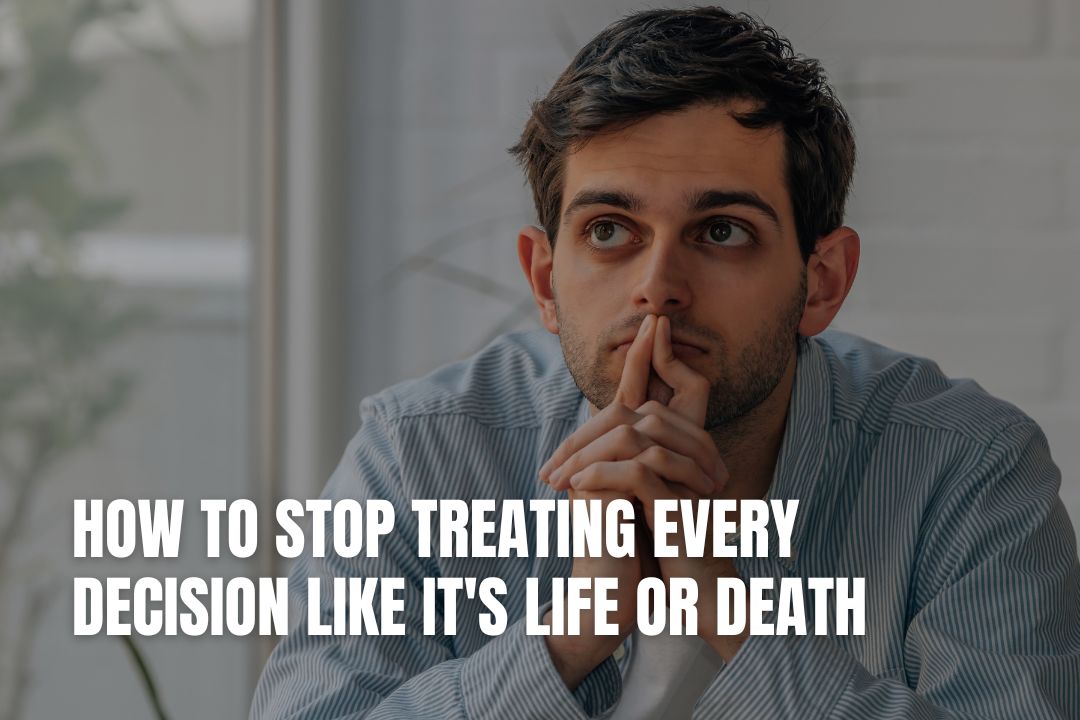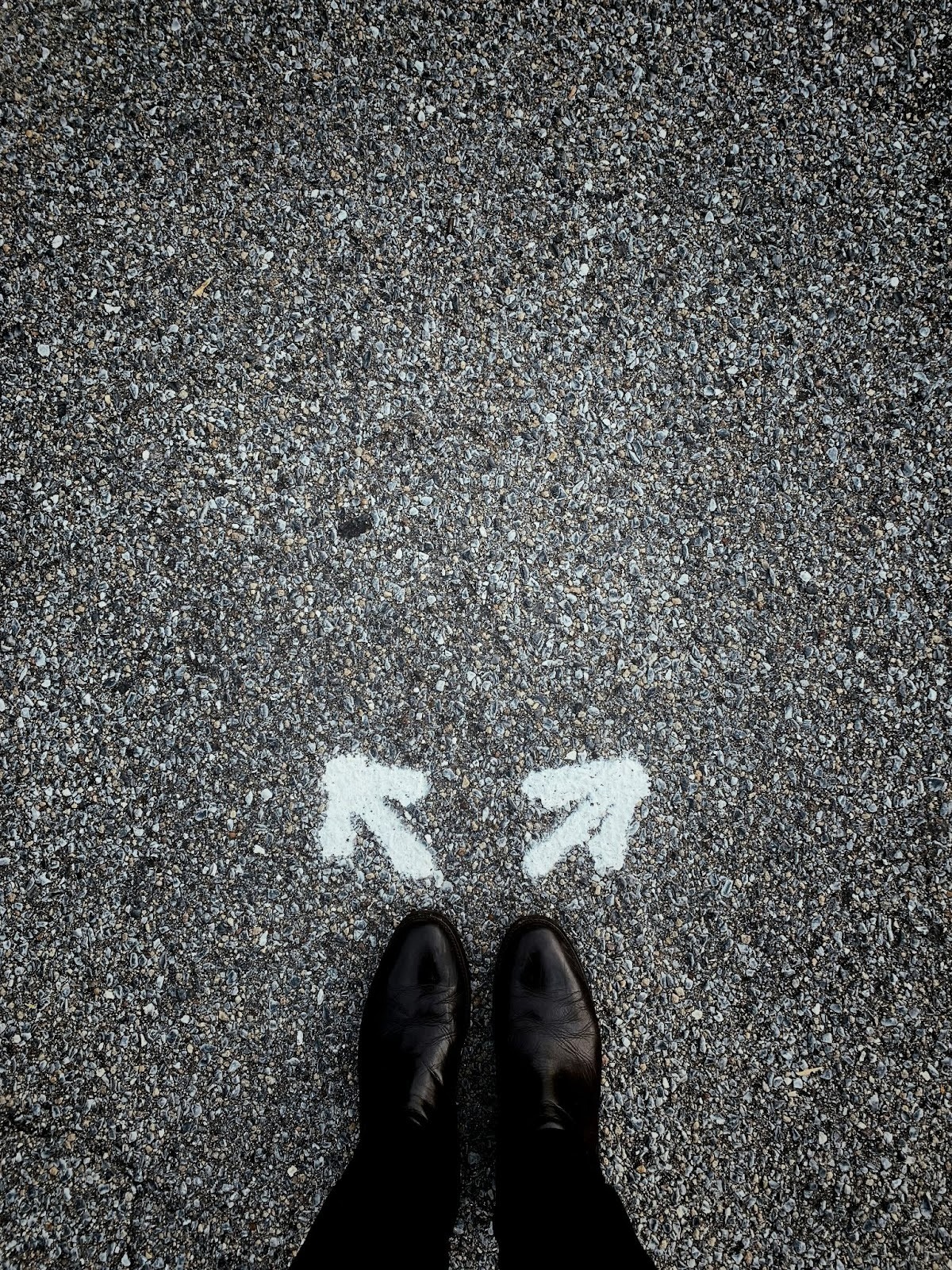
Decision-making shapes how we live, work, and connect with others. Yet, many people feel paralyzed when faced with choices, fearing the wrong move might ruin everything. This mindset creates unnecessary pressure, clouds judgment, and drains confidence. The truth is, most decisions do not carry life-or-death consequences. Learning to approach them with clarity, balance, and trust transforms daily life into a more peaceful and productive experience.

Decision anxiety often grows from fear of regret or failure. People replay possible outcomes repeatedly, convinced that one wrong choice could lead to lasting damage. This thinking pattern keeps the brain in a heightened state of alert, where logic competes with fear.
Modern life amplifies this pressure. Social media, workplace expectations, and endless advice from others make it easy to question every instinct. The more options available, the harder it becomes to choose confidently. Studies in behavioral psychology show that an overload of choices leads to indecision, stress, and dissatisfaction.
Recognizing this emotional trap marks the first step toward change. Understanding that perfection does not exist helps reframe every choice as an opportunity to learn rather than a test to pass.
Strong emotions often disguise themselves as rational thoughts during tough decisions. Worry, guilt, and fear of missing out cloud objectivity. Taking time to separate emotion from logic allows for clearer thinking.
Techniques like journaling or discussing options with a trusted friend provide perspective. Writing thoughts down exposes irrational fears and reveals patterns. Many find that when emotions settle, the best choice feels obvious.
Decision-making thrives on space and clarity. Allowing emotions to cool creates room for reason and helps the mind focus on long-term goals instead of immediate relief.
Complex decisions often feel overwhelming because of too many variables. Breaking them down into smaller parts makes them manageable. Rather than trying to solve everything at once, focus on one question at a time.
Decide what truly matters to you, not what others expect. Simplifying the process prevents mental fatigue and builds confidence. People often use tools such as a yes or no coin flip to remind themselves that not every choice deserves deep analysis. This small act can reveal your instinctive preference the moment the coin lands. If you feel relief or disappointment, your heart has already chosen. Reconnecting with instinct builds trust and reduces hesitation.
When the mind treats every decision equally, it loses the ability to prioritize. Simplification restores focus and helps you spend energy where it counts.
No decision guarantees a perfect outcome. Accepting uncertainty removes the illusion of control and reduces pressure. Growth often requires movement through doubt. Confidence builds through repeated experience rather than constant assurance.
Uncertainty should not signal danger but potential. Every decision carries both risk and reward. Approaching each with curiosity transforms fear into discovery.
Practicing mindfulness helps manage uncertainty. Paying attention to the present rather than worrying about what might happen keeps emotions grounded. Breathing exercises, meditation, or even short walks can calm the nervous system and bring clarity to thought.
Fear of failure lies at the heart of decision paralysis. People who treat mistakes as disasters struggle to move forward. Viewing them as teachers instead of punishers changes everything.
Every outcome provides feedback. A decision that leads to disappointment still delivers valuable insight about timing, preparation, or personal limits. Once lessons replace blame, failure loses its sting.
Research in leadership development shows that resilient individuals share one trait: they treat errors as part of the process. Their success comes from adaptation, not avoidance. Each decision builds skill, confidence, and wisdom.
Instincts develop from experience and subconscious knowledge. The more decisions you make, the sharper your intuition becomes. Learning to recognize and trust it reduces stress.
Instinct does not mean impulse. It combines memory, emotion, and learned behavior into subtle guidance. When facts feel balanced, listening to that quiet inner signal can save time and mental energy.
Building this trust requires practice. Make small decisions quickly, such as where to eat or which route to take. Gradually, the brain learns that action matters more than endless analysis.

Decision fatigue occurs when the brain faces constant choices throughout the day. Setting boundaries limits this exhaustion. Simple routines reduce unnecessary decision load. Planning meals, choosing clothes in advance, or setting schedules creates mental space for bigger priorities.
Boundaries prevent burnout and allow focus on what truly needs attention. Organizing daily life into manageable sections helps preserve energy and balance.
Leaders and creatives often use this strategy to stay productive. They save their mental energy for high-impact choices that demand critical thinking.
Life rarely hinges on one decision. Treating every choice as life or death limits growth and drains joy. The freedom to decide, adjust, and try again builds resilience and peace of mind. Each decision teaches something new, adding strength and clarity. The balance between thought and instinct defines wisdom. Once you accept that no single choice defines your life, every decision becomes an opportunity rather than a threat.
Small decisions can feel huge due to decision fatigue and an underlying fear of making the wrong choice. Modern life presents you with so many options that it's easy to get stuck over-analysing, which creates unnecessary pressure and anxiety.
To gain clarity, you need to create some space between your feelings and the decision itself. Try writing down your thoughts or discussing the situation with someone you trust. This process helps expose irrational fears and allows logic to come forward once your emotions have settled.
You can build trust in your instincts by starting with low-stakes choices. Practise making quick decisions about everyday things, like which route to take or what to have for dinner. This helps your brain learn that you don't need to analyse everything endlessly.
Yes, because every outcome is a learning opportunity. Instead of viewing a mistake as a disaster, reframe it as a lesson that provides valuable feedback. This approach, which we often discuss at Beacon Inside, builds resilience and reduces the fear that causes decision paralysis.
You can combat decision fatigue by establishing simple routines. Planning your meals for the week, picking out your clothes the night before, or having a set morning schedule are all effective ways to reduce your daily decision load. This frees up mental energy for more important matters.